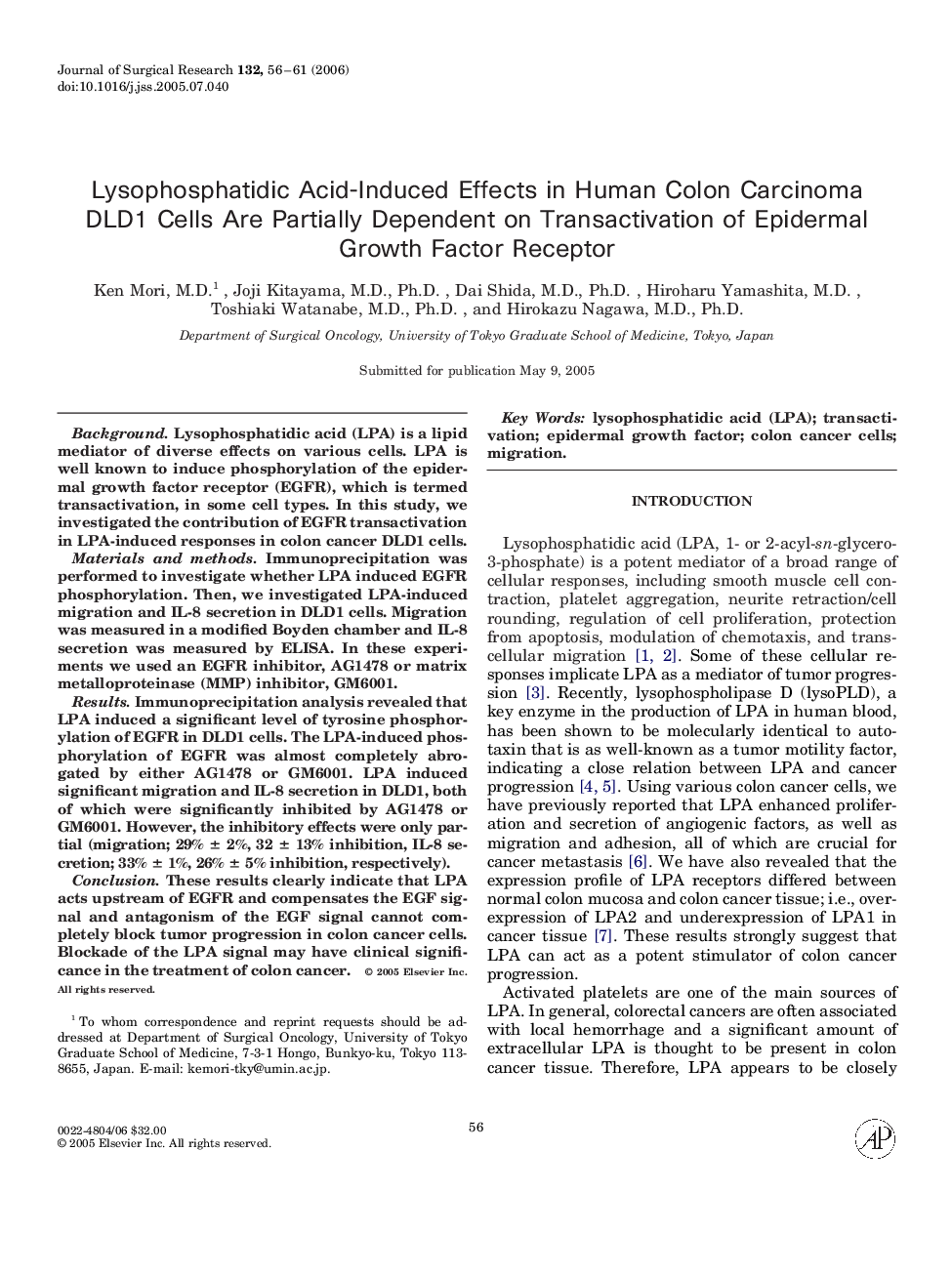| کد مقاله | کد نشریه | سال انتشار | مقاله انگلیسی | نسخه تمام متن |
|---|---|---|---|---|
| 4305176 | 1288527 | 2006 | 6 صفحه PDF | دانلود رایگان |

BackgroundLysophosphatidic acid (LPA) is a lipid mediator of diverse effects on various cells. LPA is well known to induce phosphorylation of the epidermal growth factor receptor (EGFR), which is termed transactivation, in some cell types. In this study, we investigated the contribution of EGFR transactivation in LPA-induced responses in colon cancer DLD1 cells.Materials and methodsImmunoprecipitation was performed to investigate whether LPA induced EGFR phosphorylation. Then, we investigated LPA-induced migration and IL-8 secretion in DLD1 cells. Migration was measured in a modified Boyden chamber and IL-8 secretion was measured by ELISA. In these experiments we used an EGFR inhibitor, AG1478 or matrix metalloproteinase (MMP) inhibitor, GM6001.ResultsImmunoprecipitation analysis revealed that LPA induced a significant level of tyrosine phosphorylation of EGFR in DLD1 cells. The LPA-induced phosphorylation of EGFR was almost completely abrogated by either AG1478 or GM6001. LPA induced significant migration and IL-8 secretion in DLD1, both of which were significantly inhibited by AG1478 or GM6001. However, the inhibitory effects were only partial (migration; 29% ± 2%, 32 ± 13% inhibition, IL-8 secretion; 33% ± 1%, 26% ± 5% inhibition, respectively).ConclusionThese results clearly indicate that LPA acts upstream of EGFR and compensates the EGF signal and antagonism of the EGF signal cannot completely block tumor progression in colon cancer cells. Blockade of the LPA signal may have clinical significance in the treatment of colon cancer.
Journal: Journal of Surgical Research - Volume 132, Issue 1, May 2006, Pages 56–61